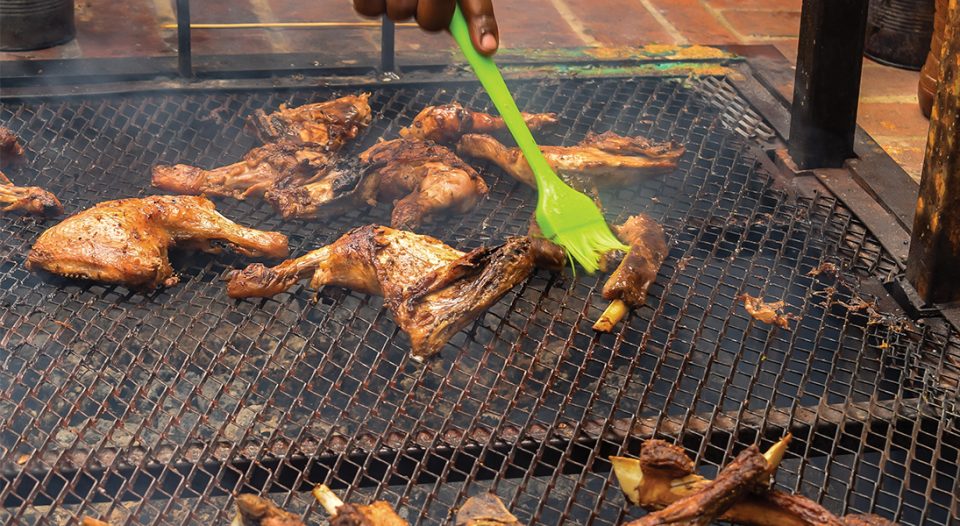For nearly a century, St. Philip Evangelical Lutheran Church has been an integral part of the lives of many African Americans in St. Louis. Situated in a historically Black neighborhood called the Ville, the congregation has played a vital role in the community over the years, serving both the spiritual and the practical needs of its neighbors.
“Throughout its 97 years, St. Philip has been involved in the community on some level, and it really is our heritage. We have been since our inception as an African American church in a predominantly African American community,” said Richard E. Ashley, the congregation’s pastor. “And while the neighborhood has changed, our commitment to making the community better hasn’t.”
During segregation, the Ville was a thriving hub for St. Louis’ African American community, with families and businesses calling the area home. But over recent decades, the neighborhood has experienced a decline.
“With desegregation, people began to move out and disperse, and those who were left in the community didn’t have the same resources,” Ashley said. “Now we deal with violence and drugs, and mental illness is a big factor. But we’re starting to see some rebuilding in the community.”
Some of that resurgence can be attributed to the support that St. Philip provides for not only its congregation but the greater community. The church hosts community groups, partners with local nonprofits, and participates in events designed to build relationships and uplift the neighborhood.
One of St. Philip’s biggest outreach efforts is called Grill to Glory, held in conjunction with the Urban League of Metropolitan St. Louis. On Saturdays between May and October, members set up grills in front of the church, cooking hot dogs and other food for the neighborhood.
“We also provide groceries when we’re able to, and we distribute clothing when we can,” Ashley said. “The program has allowed us to reach beyond the four walls of the church to actually connect with members of our community.”
The congregation also partners with Delta Sigma Theta sorority for its Trunks Up event each year. The project is in the same vein as a trunk-or-treat, but instead of handing out candy, congregation and sorority members distribute personal hygiene products.
“A lot of the products are targeted for young people and women,” Ashley said. “We started hosting the event last year, and it has been really successful.”
The congregation also opens its doors to community organizations in need of a host for meetings and events, such as the Empowerment Network, a support group for prostate cancer patients and survivors.
“It’s the largest and most functional support group for African American men,” Ashley said. “They meet in our facility once a month to provide education and encouragement to men suffering from or recovering from the disease. And for men like me, they provide information, because prostate cancer can strike without notice. Then I spread that information throughout the community.”
St. Philip also enjoys a strong partnership with other congregations in the city. Nearby Antioch Baptist Church has been a longtime collaborator, with St. Philip’s members working in its community garden and food pantry, and Antioch members supporting Grill to Glory.
“We are a community of faith,” Ashley said, “and we try to work together and help each other do the work of Christ.”
A two-pronged approach
Beyond attending to practical needs, St. Philip also offers spiritual support to members of the community outside its congregation.
Events such as Grill to Glory, Ashley said, serve as an introduction for the church to individuals in the neighborhood who might not come to worship otherwise, making connections that have led some to attend services. But St. Philip isn’t merely trying to recruit people to join the church—they want to meet people where they are and offer spiritual support and guidance that fits their needs.
“We’ve had what we call Prayers Across the Ville, where we have a prayer service and talk to people about their issues,” he said. “We try to connect them to services while also being a spiritual listening ear.”
That two-pronged approach has been particularly useful in the Ville. Ashley said the congregation focuses on the interaction between spiritual and practical needs, working to meet both whenever possible.
“We have members involved in a training that will allow them to do mental health assessments and make referrals,” he added. “A lot of times, people may present with a spiritual need, and it turns out that there are other needs as well.”
As the Ville grows and changes, Ashley said St. Philip’s members will continue to do all they can to support its neighbors and offer them the love of God in whatever form they need.
“I’m a firm believer that our spirituality doesn’t grow by sitting in a church service,” he said. “It grows by our contact and our interaction with people. And not only do we have something to offer, but they do too. This interaction strengthens my faith and brings joy to our congregation.”







